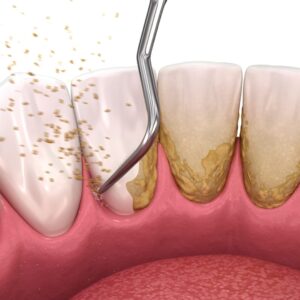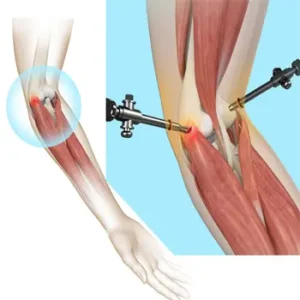Description
Familiarity with Treatment
Duodenal switch surgery, also known as biliopancreatic diversion with duodenal switch (BPD/DS), is a complex weight-loss surgical procedure designed to help individuals with severe obesity achieve significant and lasting weight loss. It involves a combination of restrictive and malabsorptive techniques to reduce the size of the stomach and bypass a significant portion of the small intestine, leading to reduced calorie absorption and weight loss.
Procedure
During duodenal switch surgery, the surgeon first performs a sleeve gastrectomy to remove a large portion of the stomach, creating a smaller, banana-shaped stomach. The second part of the procedure involves rerouting a significant portion of the small intestine to create two separate pathways for food and digestive juices. This results in reduced calorie and nutrient absorption, leading to weight loss.
Who is it Suitable For?
Duodenal switch surgery is suitable for individuals with severe obesity, particularly those with a body mass index (BMI) of 50 or higher, or those with a severe form of obesity-related disease. It is considered the most effective weight-loss surgery method, with profound and lasting results, particularly in improving metabolic syndromes such as Type 2 diabetes.
Who is it Not Suitable For?
Duodenal switch surgery may not be suitable for individuals with certain medical conditions or those who have contraindications to surgery or general anesthesia. The decision to undergo duodenal switch surgery should be made in consultation with a healthcare provider, considering the individual’s overall health and specific medical history.
Advantages
- Profound Weight Loss: The duodenal switch has the most profound weight loss results of all bariatric procedures, making it an effective option for individuals with severe obesity.
- Improvement of Metabolic Syndromes: Duodenal switch surgery dramatically improves metabolic syndromes such as Type 2 diabetes, making it a valuable treatment option for individuals with severe obesity-related diseases.
Complications
- Higher Rate of Complications: The duodenal switch surgery has a higher rate of complications compared to other bariatric procedures due to its complexity and the extent of gastrointestinal tract modification involved.
- Nutritional Deficiencies: Patients undergoing duodenal switch surgery are at a higher risk of developing nutritional deficiencies, including those that can be life-threatening if left untreated.
Preoperative Care
Preoperative care for duodenal switch surgery involves a comprehensive evaluation by the healthcare provider to determine the need for surgery and the most appropriate approach. This may include medical risk reduction, weight loss goals before the surgery, and a strict diet to prepare the body for the procedure.
Postoperative Care
Postoperative care for duodenal switch surgery includes a strict diet and vitamin supplementation to avoid malnutrition. Patients will need to closely follow their care team’s instructions to avoid complications and ensure a successful recovery. Additionally, frequent follow-up care and long-term monitoring are essential for the management of potential complications and nutritional deficiencies.
Duodenal switch surgery is a highly complex and effective weight-loss procedure designed for individuals with severe obesity and related conditions. It is important to carefully consider the potential benefits and risks of the surgery and to follow the healthcare provider’s instructions for a successful recovery.




Reviews
There are no reviews yet.